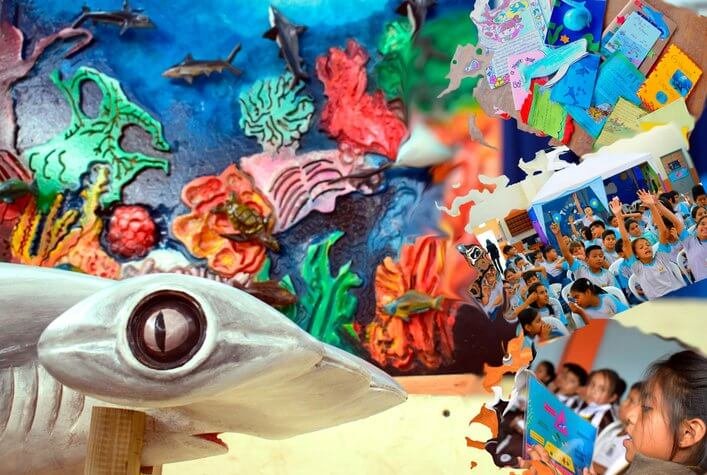
“Galapagos needs sharks, sharks need Galapagos”. This is the main focus of the environmental education workshops that have been developed for 5th, 6th and 7th graders in all the schools of Santa Cruz and that will soon be disseminated on the islands of Floreana, San Cristobal and Isabela as part of the “Protect the Fins and the Ocean Wins” campaign that the Charles Darwin Foundation (CDF) has been developing in the last month.
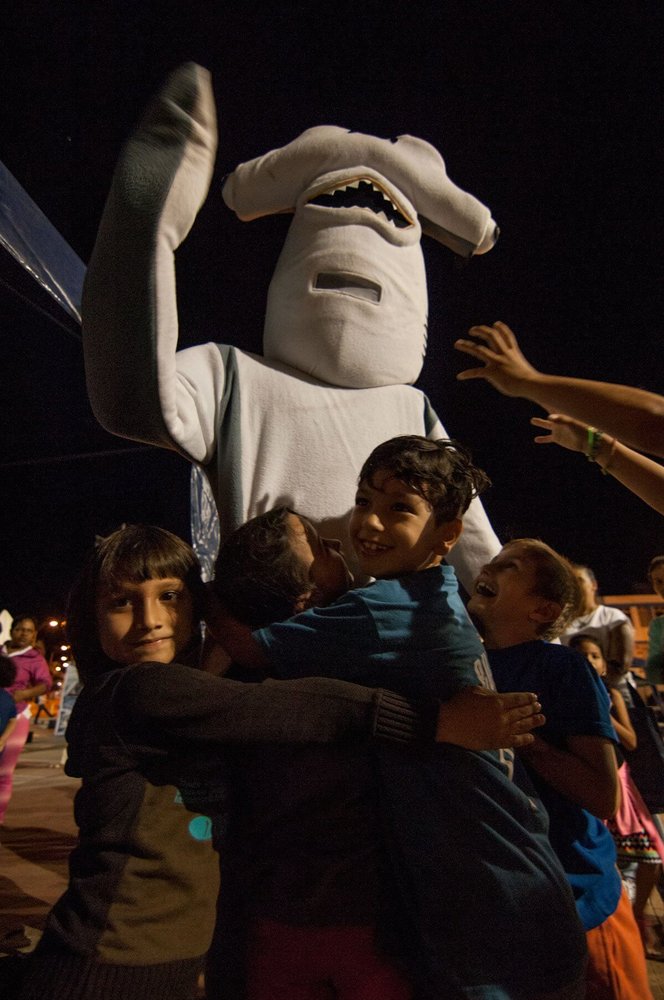
“What comes to your mind when I say the word ’shark’?”, we ask the students before every workshop. We receive positive answers, such as: “animals that clean the oceans!” or, “tourists come to see them!”, but we also encounter answers such as “they are dangerous!” or ”they eat people!”. The latter responses don’t surprise us, given the bad publicity sharks have received over time in movies or from sensationalist news in the media. That’s why we are working to change this negative perception, providing children with information about sharks, from their anatomy to their touristic value - so they can appreciate sharks.
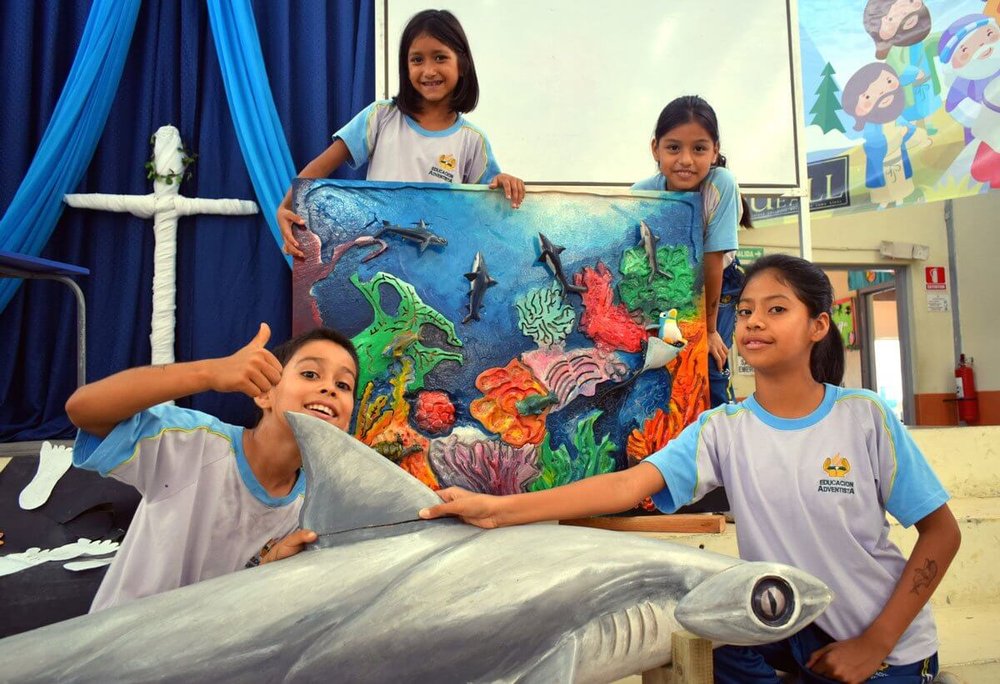
Dynamism, engagement and creativity are the main pillars of our workshops. What are sharks? What is their role in the ecosystem? Are sharks worth more dead or alive? Are humans part of their diet? We ask these type of questions to evaluate the students’ initial perceptions and shark knowledge. Then, we answer their questions and provide explanations with various supporting materials that will leave lasting impressions in the children’s minds, such as a shark anatomy model the children can assemble; a marine ecosystem panel to better demonstrate the role of sharks; and an immersive experience with virtual reality glasses that allows the children to observe the majestic swim of whale sharks and the Galapagos underwater life as virtual divers.
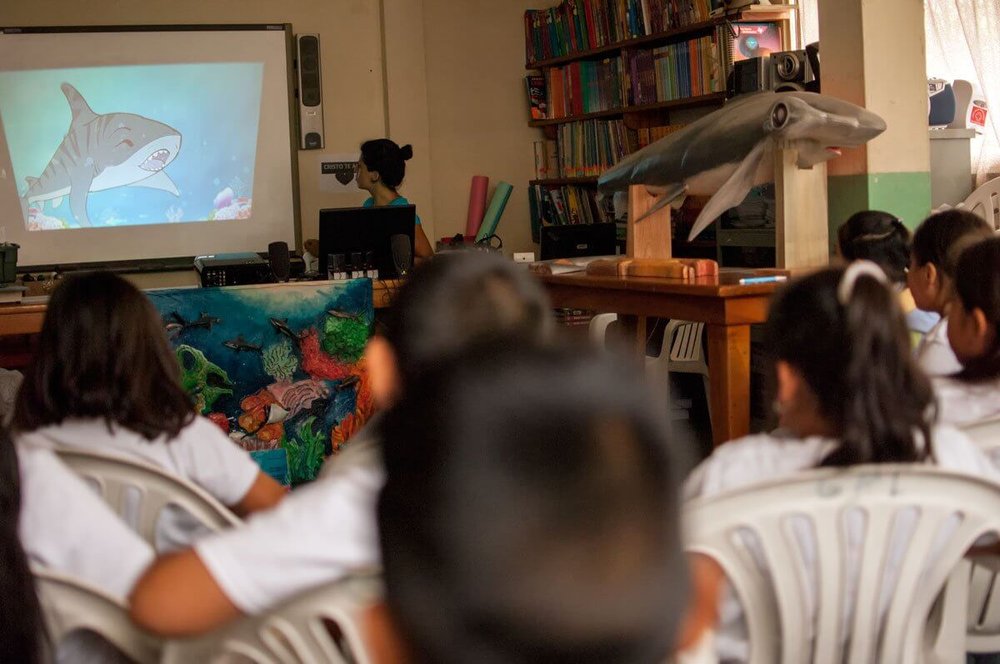
Our diverse educational materials ensure we capture the children’s curiosity, through one method or another. Among our educational materials are animated videos featuring special shark characters, each one focused on a specific topic: Guillo the hammerhead explains shark anatomy and shark vulnerability; Ron talks about the current global situation of sharks; Vanessa the tiger shark talks about the important role sharks play in the ocean; and Ramona the whale shark discusses the importance of marine protected areas.
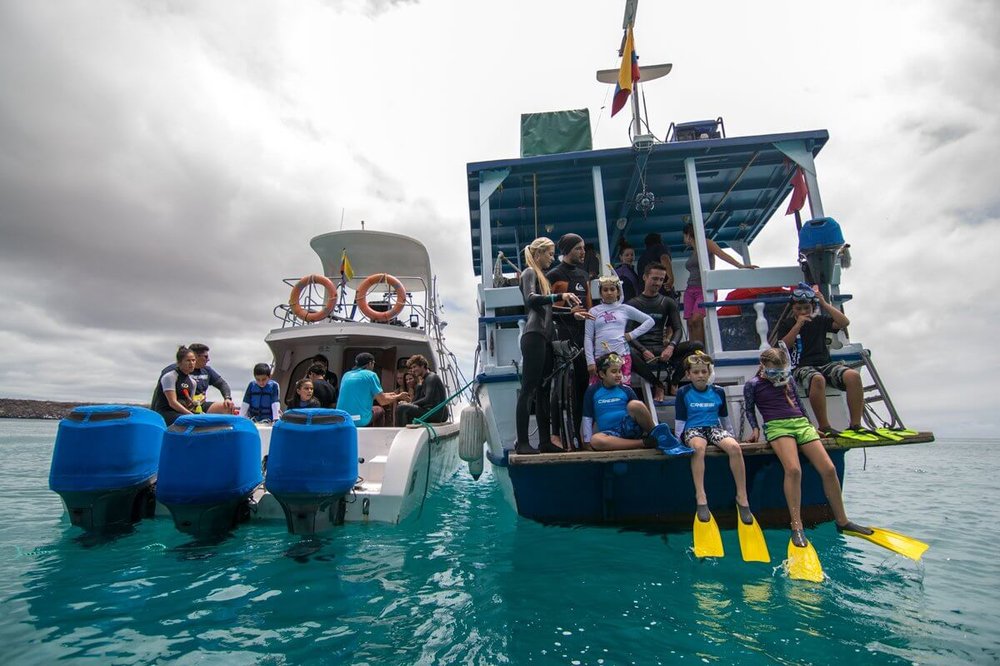
In addition, to motivate interest in research and promote the creative spirit of kids, we held a story and drawing contest focused on sharks and the Galapagos. The winners had the opportunity to go on a snorkeling fieldtrip with the CDF marine team as well as famous international free divers who visited the island for the Galapagos Evolution Event organized by the Ecuadorian Ministry of Tourism, Red Mangrove Hotel, Cressi and GoPro. Among them, Ocean Ramsey, Pierre-Yves Cousteau, Estrella Navarro, Leo Morales and Guillaume Nery.
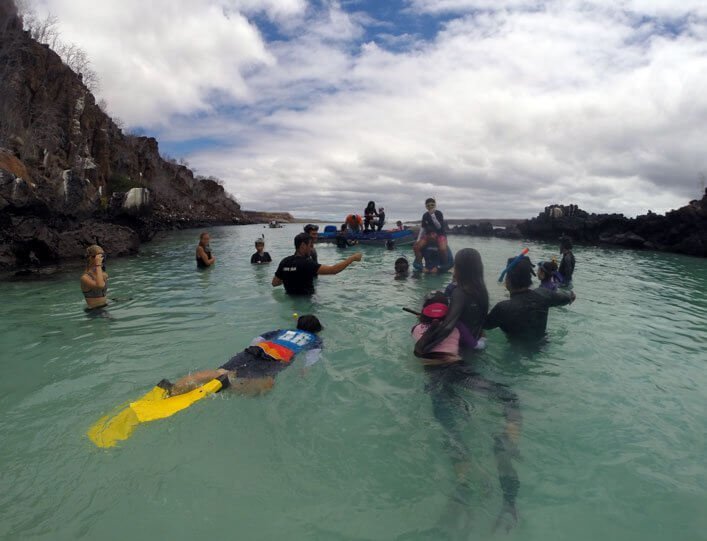
On the morning of Saturday August 6th, we travelled with the children, CDF staff and international free divers to a small Bay at Punta Carrion, located at the northeast of Santa Cruz in the Itabaca Channel hoping to find sharks. “I had never seen a shark in real life, I hope to see them today!” one of the winning children exclaimed enthusiastically. We went on two boats, Queen Mabel and Valeska, whose captains very kindly allowed us to use to carry out our activity. We all entered the water and we saw several animals, among them, white tip sharks swimming and resting in caves. We returned to Puerto Ayora and in the afternoon the group participated in an event CDF organized for the local community in which our ambassadors spoke about their relationship with the ocean and sharks. They shared their personal experiences demonstrating that a sustainable coexistence between humans and sharks is actually possible taking Galapagos as an example after their experience in the archipelago.
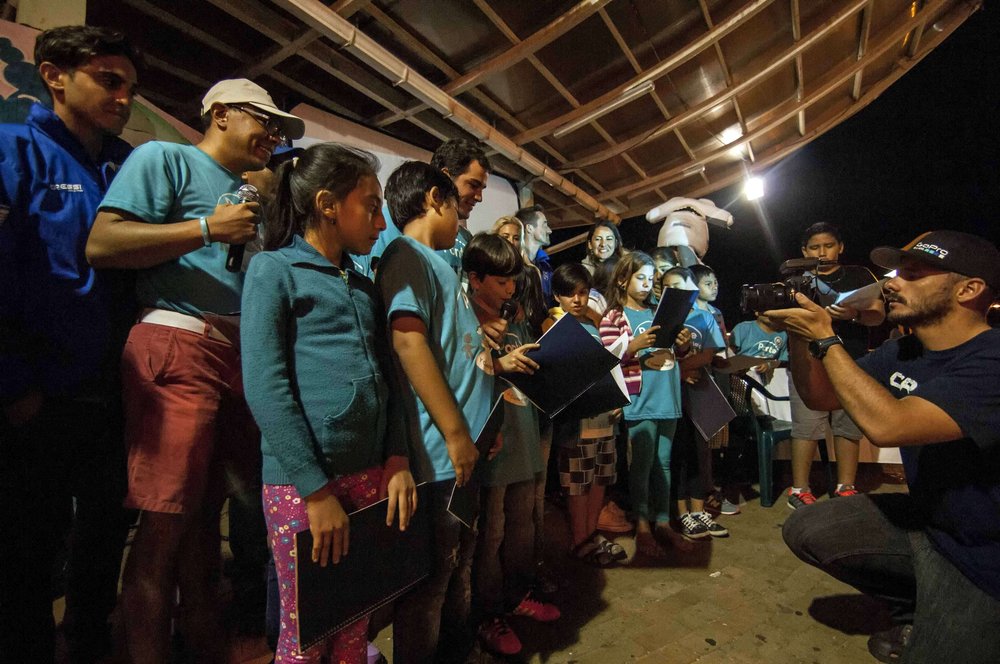
“This has been a very gratifying experience for us to see the children are interested in participating in the contest; we received more than 250 stories from which 14 were the selected winners who enjoyed the field trip and were awarded with a diploma in the community event. Additionally, to see the joy of children when they saw a shark is priceless, we fulfilled our goal and we hope to continue doing this kind of activities regularly”.
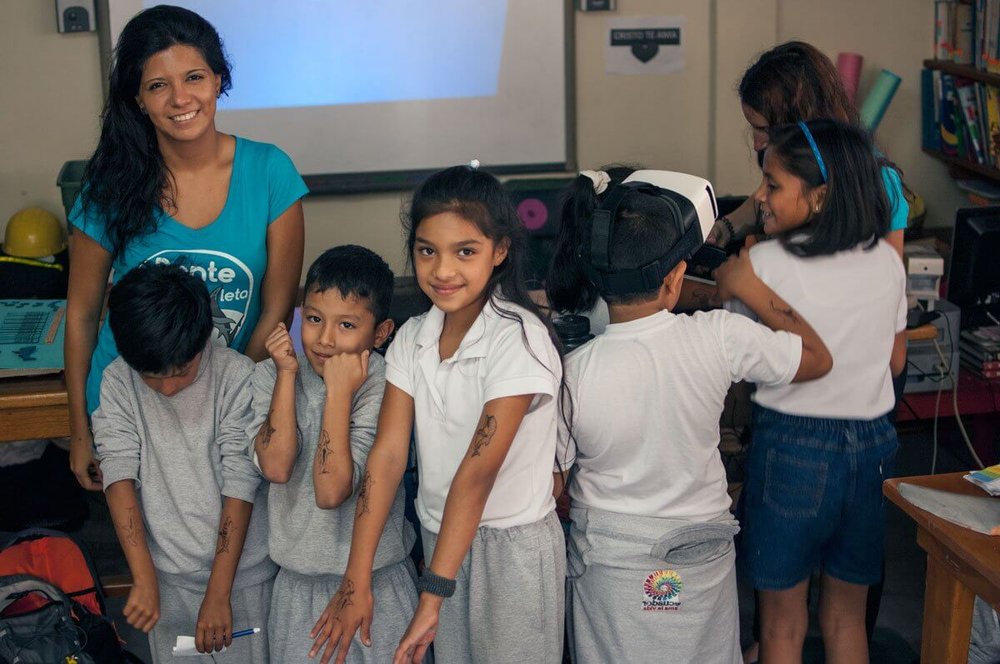
In addition to the mentioned events, CDF held a festival to celebrate “Shark Week”, providing different educational and outreach activities for the local community.
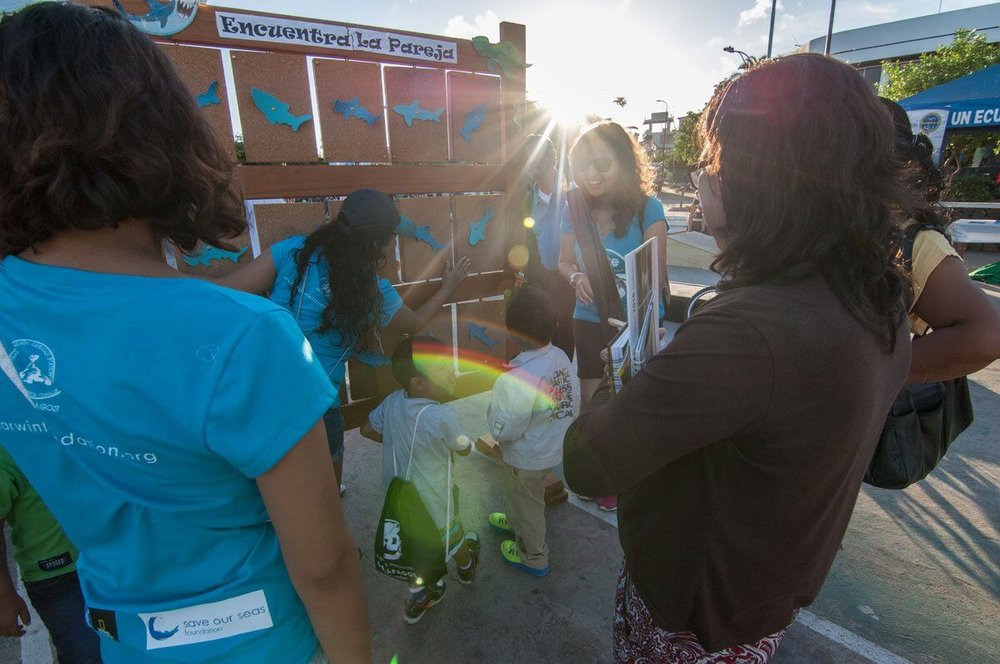
“To protect reality, we need to know it”, and that’s why the generation of knowledge is so important as well as its dissemination, because only by this way we will protect our environment from the justified understanding of their vulnerability.





